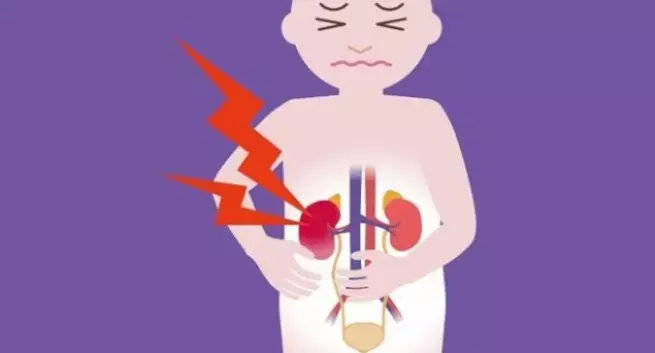- Home
- Medical news & Guidelines
- Anesthesiology
- Cardiology and CTVS
- Critical Care
- Dentistry
- Dermatology
- Diabetes and Endocrinology
- ENT
- Gastroenterology
- Medicine
- Nephrology
- Neurology
- Obstretics-Gynaecology
- Oncology
- Ophthalmology
- Orthopaedics
- Pediatrics-Neonatology
- Psychiatry
- Pulmonology
- Radiology
- Surgery
- Urology
- Laboratory Medicine
- Diet
- Nursing
- Paramedical
- Physiotherapy
- Health news
- Fact Check
- Bone Health Fact Check
- Brain Health Fact Check
- Cancer Related Fact Check
- Child Care Fact Check
- Dental and oral health fact check
- Diabetes and metabolic health fact check
- Diet and Nutrition Fact Check
- Eye and ENT Care Fact Check
- Fitness fact check
- Gut health fact check
- Heart health fact check
- Kidney health fact check
- Medical education fact check
- Men's health fact check
- Respiratory fact check
- Skin and hair care fact check
- Vaccine and Immunization fact check
- Women's health fact check
- AYUSH
- State News
- Andaman and Nicobar Islands
- Andhra Pradesh
- Arunachal Pradesh
- Assam
- Bihar
- Chandigarh
- Chattisgarh
- Dadra and Nagar Haveli
- Daman and Diu
- Delhi
- Goa
- Gujarat
- Haryana
- Himachal Pradesh
- Jammu & Kashmir
- Jharkhand
- Karnataka
- Kerala
- Ladakh
- Lakshadweep
- Madhya Pradesh
- Maharashtra
- Manipur
- Meghalaya
- Mizoram
- Nagaland
- Odisha
- Puducherry
- Punjab
- Rajasthan
- Sikkim
- Tamil Nadu
- Telangana
- Tripura
- Uttar Pradesh
- Uttrakhand
- West Bengal
- Medical Education
- Industry
Discontinuation of RAAS inhibitors Might Worsen Kidney Function in Kids With CKD

Renin-angiotensin-aldosterone system inhibition (RAASi) with angiotensin-converting enzyme (ACE) inhibition or angiotensin receptor blockade (ARB) is a mainstay therapy for kidney and cardiovascular protection in adults and children with Chronic Kidney Disease (CKD). A recent study suggests that discontinuation of RAASi might decline kidney function in children with CKD. The study findings were published in the Clinical Journal of the American Society of Nephrology on May 07, 2021.
Although RAASi is a cornerstone in the treatment of children with CKD, clinicians frequently decide to discontinue RAASi in the course of kidney disease progression. However, it is unknown whether discontinuation of RAASi will affect risk markers for CKD and possibly accelerate kidney function decline. Therefore, Dr Sophie M. van den Belt and her team conducted a study to evaluate the reasons for RAASi discontinuation and associations between RAASi discontinuation and important risk markers of CKD progression and on eGFR decline in the Cardiovascular Comorbidity in Children with CKD study.
In this study, the researchers included the data of 69 children with CKD who discontinued RAASi from the Cardiovascular Comorbidity in Children with CKD (4C) study. They assessed the initial change in BP, albuminuria, and potassium after discontinuation. They used the linear mixed-effects modelling to assess the rate of eGFR decline (eGFR slope) during a median of 1.9 years before and 1.2 years after discontinuation.
Key findings of the study were:
- The researchers noted that the physicians commonly discontinued RAASi in patients due to increased serum creatinine (33%), hyperkalemia (23%), and hypotension (17%). RAASi was immediately replaced by other antihypertensive medications in 20% of children.
- Upon analysis, they found that after discontinuation of RAASi, BP and albuminuria increased, whereas potassium decreased.
- They found that the eGFR declined faster after RAASi discontinuation than before: -3.9 vs -1.5 mL/min/1.73 m2 per year before discontinuation.
- However, they observed no change in eGFR slope in a matched control cohort of patients in whom RAASi was continued.
The authors concluded, " Discontinuation of RAASi in children with CKD is associated with an acceleration of kidney function decline. These results are consistent with the notion that RAASi is important for kidney protection in advanced pediatric CKD, and that clinicians should consider the possible adverse effect on long-term kidney function when discontinuing RAASi."
In an accompanying editorial comment Dr Marie-Michéle Gaudreault-Tremblay and Dr Bethany J. Foster wrote, "Discontinuation of RAASi remains a reasonable response to hyperkalemia in advanced CKD, but if no improvement in potassium follows, van den Belt et al. findings suggest that reinitiation of RAASi should be considered."
They further added, " the work of van den Belt et al. reminds us that children, and even younger adults, may respond differently."
For further information:
https://cjasn.asnjournals.org/content/15/5/625
Dr Kartikeya Kohli is an Internal Medicine Consultant at Sitaram Bhartia Hospital in Delhi with super speciality training in Nephrology. He has worked with various eminent hospitals like Indraprastha Apollo Hospital, Sir Gangaram Hospital. He holds an MBBS from Kasturba Medical College Manipal, DNB Internal Medicine, Post Graduate Diploma in Clinical Research and Business Development, Fellow DNB Nephrology, MRCP and ECFMG Certification. He has been closely associated with India Medical Association South Delhi Branch and Delhi Medical Association and has been organising continuing medical education programs on their behalf from time to time. Further he has been contributing medical articles for their newsletters as well. He is also associated with electronic media and TV for conduction and presentation of health programs. He has been associated with Medical Dialogues for last 3 years and contributing articles on regular basis.
Dr Kamal Kant Kohli-MBBS, DTCD- a chest specialist with more than 30 years of practice and a flair for writing clinical articles, Dr Kamal Kant Kohli joined Medical Dialogues as a Chief Editor of Medical News. Besides writing articles, as an editor, he proofreads and verifies all the medical content published on Medical Dialogues including those coming from journals, studies,medical conferences,guidelines etc. Email: drkohli@medicaldialogues.in. Contact no. 011-43720751


